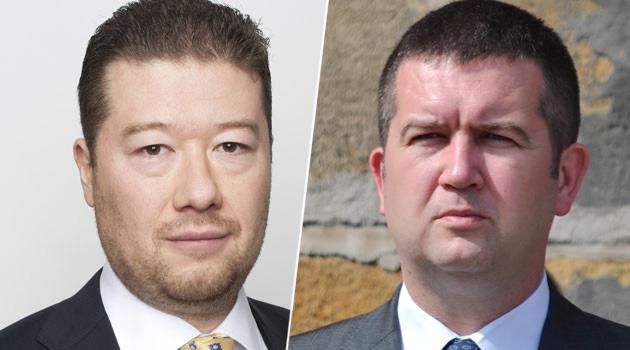Czech Police, prosecutors intensively focus on online haters, number of prosecutions rising

The Czech Police and prosecutors are intensively concentrating on the activities of those who disseminate what is being called “bias hate” on the Internet. Extremism per se is declining in the Czech Republic, but hatred and insults online have been taking its place.
The crimes most frequently committed in that vein are: giving the Nazi salute; presenting tattoos in public that are evidence of illegal behavior; or illegal remarks made through the Internet in particular. Due to a slight rise in terrorist incidents in the Czech Republic, prosecutors are arguing that they need the law to be changed so that they can order house searches and wiretaps immediately without a court order in dangerous cases.
Those are the conclusions of the recent Annual Report on Public Prosecutors’ Activity for 2018, which has been analyzed in detail by news server Česká justice (Czech Justice). The introduction of the term “bias hate” (předsudečná nenávist) in April of this year was approved by the Government along with Interior Ministry documents about how to eliminate the phenomenon.
“Bias hate”, according to the ministerial definition, is committed by those who “are not striving for the immediate destruction of the democratic system, but are gradually weakening it”, by those who disrespect the concept of fundamental human rights, who incite hateful acts against others, who disseminate fear in society, who sow divisions in society, who spark antagonisms in society, and who make light of the victims of totalitarian regimes or the victims of hate crime. In their communications with the public, such persons also exploit conspiracy theories and disinformation, thereby becoming instruments for the influential activities of countries and groups that disrespect the principles of democratic pluralism.
According to the most recent Annual Report on Public Prosecutors’ Activity, extremism is declining as hatred and insults grow. “From the data in the police statistics it can be seen that in 2018 the Police of the Czech Republic detected 179 felonies with an extremist subtext. Year-on-year, that was a growth of 26 such crimes. Of those, 59.8 % were solved, i.e., 107 (compared to 102 solved in 2017, or 66.7 %),” the report states.
“The most frequent felonies in the area of extremism are cases of giving the Nazi salute; presenting so-called ‘defective’ symbols on clothing, or spray-painting them on buildings, or the public presentation of defective tattoos; hateful remarks that are published on the Internet; racially-motivated insults, etc. A decline in ‘pure’ promotion of extremist movements aiming to suppress human rights and freedoms can be observed, but it is being balanced out by a growth in hateful remarks on the Internet, especially through social media,” the report states.
Hate speech targeting Romani people, according to the report, has partially shifted toward more hate speech against immigrants, Muslims, and those who are in favor of refugee reception. “At the same time, the number of physical assaults committed against persons of a different skin color, or against Muslims, has slightly increased, but fortunately such activity has yet to have fatal consequences,” the report states.
“Prosecution was undertaken at the district level in Příbram against defendant P.M. because he made crude comments and insults and shared online articles and posts, using his Facebook profile to record and share images intending to defame and insult the Black race, ethnic Roma, and Jewish people, as well as to incite hatred toward those groups, all the while publicly approving of Communist crimes against humanity and the Nazi genocides,” describes the Supreme State Prosecutor in the report, adding that the defendant “got” a year-long prison sentence, conditionally suspended for three years for that behavior. The authors of the report also warn the members of Czech society that they can be prosecuted for such speech, with all the consequences that entails.
“It is necessary to adjust the lay person’s idea that remarks published through the Internet cannot be prosecuted under Czech criminal law. It is already possible to note the growth in the number of persons either prosecuted or convicted of hate crime today. Collaboration with representatives of the Interior Ministry, of the nonprofit sector, and of the Police of the Czech Republic in this vein has already been established and is also important,” the report states.
